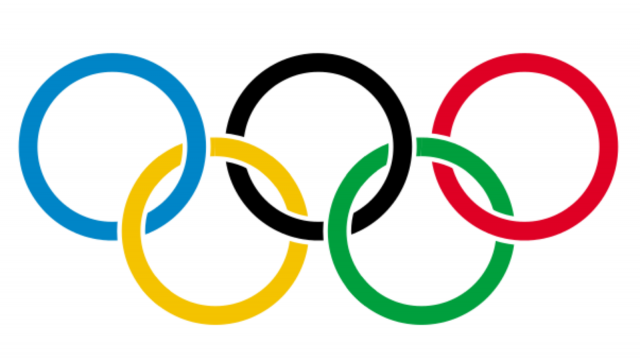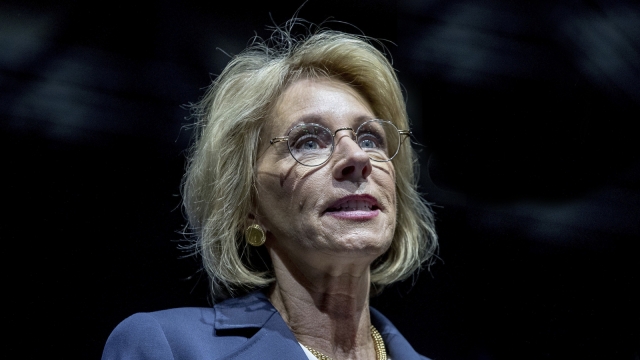
Today, HRC announced it had recruited 104 top businesses — employing more than 5.8 million people — as corporate cosponsors on the Equality Act. By joining HRC’s Business Coalition for the Equality Act, these companies have stepped up to support full federal equality for LGBTQ people through the Equality Act, landmark federal legislation that would provide the same basic nondiscrimination protections to LGBTQ people as other protected groups under federal law.
“The more than 100 businesses that have joined HRC’s Business Coalition for the Equality Act are sending a loud and clear message that the time has come for full federal equality,” said HRC President Chad Griffin. “This is a milestone in corporate support for the Equality Act, and we urge Congress to listen to this growing chorus of American businesses and protect all LGBTQ people from discrimination.”
“At Cargill, one of our guiding principles is that we treat people with dignity and respect. Everyday around the world our employees go to work to deliver on our noble purpose of being the leader in nourishing the world in a safe, responsible, and sustainable way,” said Cargill Chief Diversity Officer Willard McCloud. “To do so, we believe it’s critically important that those very same employees and their families feel safe and affirmed, not only at work, but in the communities in which they live, shop, and send their children to school. Cargill’s support of the Equality Act is fundamental to ensuring that all of our employees feel as safe in their communities as they do in our offices, and are not discriminated against in housing, access to credit, employment or other opportunities.”
“As the first company to publicly support passage of the federal Equality Act in the United States, we recognize the fight for equality is far from over,” said Cory Valente Global Leader for the LGBTQ and allies Employee Resource Group at Dow Chemical. “No one should be fired, evicted from their home, or denied services because of who they are. Supporting inclusion and equality is the right thing to do – for business and for society.”
Launched in March 2016, HRC’s Business Coalition for the Equality Act includes companies with operations in all 50 states, headquarters spanning 23 states, and a collective revenue of $2.6 trillion. In total, these companies employ more than 5.8 million people across the United States.
The Equality Act creates clear, consistent protections against discrimination on the basis of sexual orientation and gender identity in employment ensuring that LGBTQ employees are hired, fired, and promoted based solely on their performance. In addition, the bill provides protections from discrimination for LGBTQ people in housing, education, credit and jury service. It would also prohibit discrimination in public accommodations and federal funding on the basis of sex, sexual orientation and gender identity. Today, in 31 states, LGBTQ people remain at risk of being fired, evicted or denied services because of who they are.
First introduced in 2015 by Representative David Cicilline (D-RI) and by Senators Jeff Merkley (D-OR), Tammy Baldwin (D-WI) and Cory Booker (D-NJ), the Equality Act is currently co-sponsored by 241 members of Congress.
The overwhelming majority of Americans across the political spectrum support full federal equality for LGBTQ people. Polling released last year by the nonpartisan Public Religion Research Institute (PRRI) found that support for a bill like the Equality Act topped 70 percent nationally, including a majority of Democrats, Republicans and Independents. PRRI’s groundbreaking survey included 42,000 interviews in 50 states and found majority support for the Equality Act in all 50 states.
Major corporations in the HRC Business Coalition for the Equality Act include Abercrombie & Fitch Co.; Accenture; Adobe Systems Inc.; Advanced Micro Devices Inc.; Airbnb Inc.; Alcoa Inc.; Amazon.com Inc.; American Airlines; American Eagle Outfitters; American Express Global Business Travel; Apple Inc.; Arconic; Ascena Retail Group Inc.; Automatic Data Processing Inc.; Bain & Co. Inc.; Bank of America; Best Buy Co. Inc.; Biogen; Boehringer Ingelheim USA Corp.; Booz Allen Hamilton Inc.; Boston Scientific Corp.; Broadridge Financial Solutions Inc.; Brown-Forman Corp.; CA Technologies Inc.; Caesars Entertainment Corp.; Capital One Financial Corp.; Cardinal Health Inc.; Cargill Inc.; Chevron Corp.; Choice Hotels International Inc.; Cisco Systems Inc.; The Coca-Cola Co.; Corning Inc.; Cox Enterprises Inc.; CVS Health Corp.; Darden Restaurants Inc.; Delhaize America Inc.; Diageo North America; The Dow Chemical Co.; Dropbox Inc.; E. I. du Pont de Nemours and Co. (DuPont); eBay Inc.; EMC Corp.; Facebook Inc.; Gap Inc.; General Electric Co.; General Mills Inc.; Google Inc.; HERE North America LLC; The Hershey Company; Hewlett Packard Enterprises; Hilton Inc.; HP Inc.; HSN Inc.; Hughes Hubbard & Reed LLP; Hyatt Hotels Corp.; IBM Corp.; Intel Corp.; InterContinental Hotels Group Americas; Johnson & Johnson; JP Morgan Chase & Co.; Kaiser Permanente; Kellogg Co.; Kenneth Cole Productions; Levi Strauss & Co.; Macy’s Inc.; Marriott International Inc.; MasterCard Inc.; Microsoft Corp.; Mitchell Gold + Bob Williams; Monsanto Co.; Moody’s Corp.; Nationwide; Navigant Consulting Inc.; Nike Inc.; Northrop Grumman Corp.; Office Depot Inc.; Oracle Corp.; Orbitz Worldwide Inc.; Paul Hastings LLP; PepsiCo Inc.; Procter & Gamble Co.; Pure Storage Inc.; Qualcomm Inc.; Replacements Ltd.; S&P Global Inc.; Salesforce; SAP America Inc.; Sodexo Inc.; Symantec Corp.; Synchrony Financial; T-Mobile USA Inc.; Target Corp.; Tech Data Corp.; TIAA; Twitter Inc.; Uber Technologies Inc; Under Armour Inc; Unilever; Warby Parker; WeddingWire Inc.; Whirlpool Corporation; Williams-Sonoma Inc.; and Xerox Corp.
Read more




